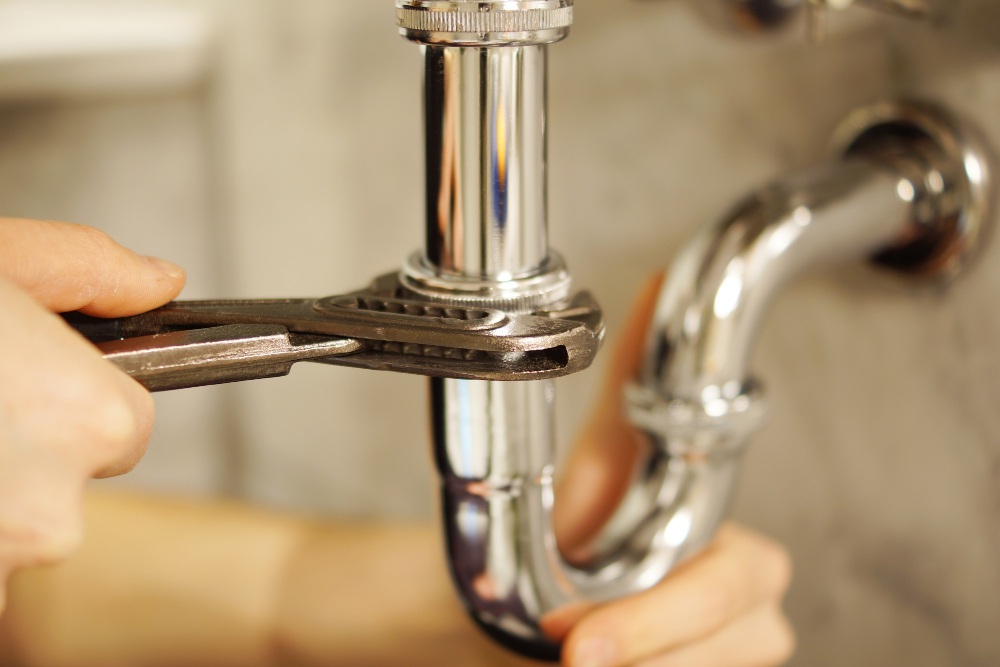Table of Contents
Living in Washington means getting used to heavy rains, soggy yards, and occasional flooding. While a few puddles here and there might seem harmless, ongoing drainage issues can cause serious damage to your home’s foundation, landscaping, and even indoor air quality. So, when water starts pooling around your home, the big question is: Can I fix this myself, or is it time to call a drainage repair contractor? Let’s break down when a do-it-yourself approach makes sense—and when it’s time to bring in the pros.
Common Drainage Problems for Homeowners

Drainage problems in Washington often happen because of our wet climate, heavy clay soils, and sloped terrain. You might notice:
- Water pooling near your foundation or in your yard
- Erosion on slopes or around the base of your home
- Damp or musty smells in your crawl space or basement
- Flooding after every major storm
These signs point to issues in how your property handles rainwater—and they shouldn’t be ignored.
When You Can Tackle Drainage Repairs Yourself

DIY drainage repair is possible when the issue is minor, surface-level, and easy to spot. Some common fixes homeowners can handle include:
1. Cleaning Gutters and Downspouts
Clogged gutters are a leading cause of water overflow near the home. Clearing them out allows proper drainage away from your roof and walls.
2. Extending Downspouts
Many homes in WA don’t have long enough downspouts. Adding extensions to guide water further from the foundation can prevent pooling.
3. Topsoil Grading
Low spots around your house can be filled with topsoil and gently sloped away from the foundation to redirect runoff.
4. Creating Shallow Swales or Gravel Paths
A DIY swale is a small ditch that guides water through your yard safely. When lined with gravel or grass, it helps water move without eroding the soil.
These are affordable solutions for smaller problems—and often enough for short-term relief.
Signs You Need Professional Drainage Repair

Some drainage issues go much deeper—literally. If the water problems are more complex, a licensed contractor will have the tools, experience, and planning to fix them right.
Here’s when to call in the pros:
01. Water in Your Basement or Crawl Space
If water is making its way inside, it could be seeping through foundation walls or beneath the slab. A professional inspection is needed to stop the damage before it worsens.
02. Frequent or Worsening Erosion
Soil shifting, collapsing slopes, or exposed roots mean your yard’s stability is at risk. Surface fixes won’t cut it—you need a long-term drainage plan.
03. Foundation Cracks
Water pressure on foundation walls can cause cracking and movement. This needs more than a quick patch—it requires drainage correction around your home.
04. Outdated or Failing Drainage Systems
Old, clogged, or collapsed pipes may be buried under your yard. Locating and replacing them isn’t a job for the average homeowner.
In these cases, reliable drainage repair is essential to protect your home from lasting water damage.
What Do Professional Drainage Contractors Do?

A drainage contractor doesn’t just solve the surface problem—they find the root cause. Here’s how they help:
- Site Assessment & Water Flow Analysis
They evaluate slopes, soil types, existing drainage systems, and runoff paths to design the right solution. - Custom Drainage Design
This might include French drains, channel drains, sump pumps, dry wells, or regarding your yard. - Professional Installation
Drainage repair professionals use specialized equipment to dig, install piping, add filter fabrics, and connect systems to ensure long-term success. - Code Compliance
They handle permits and ensure all work follows Washington’s building and stormwater codes.
Hiring a professional may cost more upfront—but their work often prevents thousands of dollars in water damage later.
The True Cost of DIY Drainage Mistakes

It’s tempting to cut corners with a quick fix, but mistakes in drainage design can lead to:
- Basement flooding
- Mold growth
- Foundation damage
- Landscape erosion
- Repeated costly repairs
Instead of constantly battling water, working with a trusted drainage repair contractor gives you confidence that the problem is solved at the source.
Final Thoughts: DIY or Professional Drainage Help?
Ask yourself:
- Is the problem small and clearly visible?
- Do I have the tools, time, and know-how?
- Is water affecting my home’s structure or indoor areas?
- Have previous DIY fixes failed?
If you’re dealing with persistent or severe drainage problems, it’s time to explore reliable drainage repair options from a local expert.